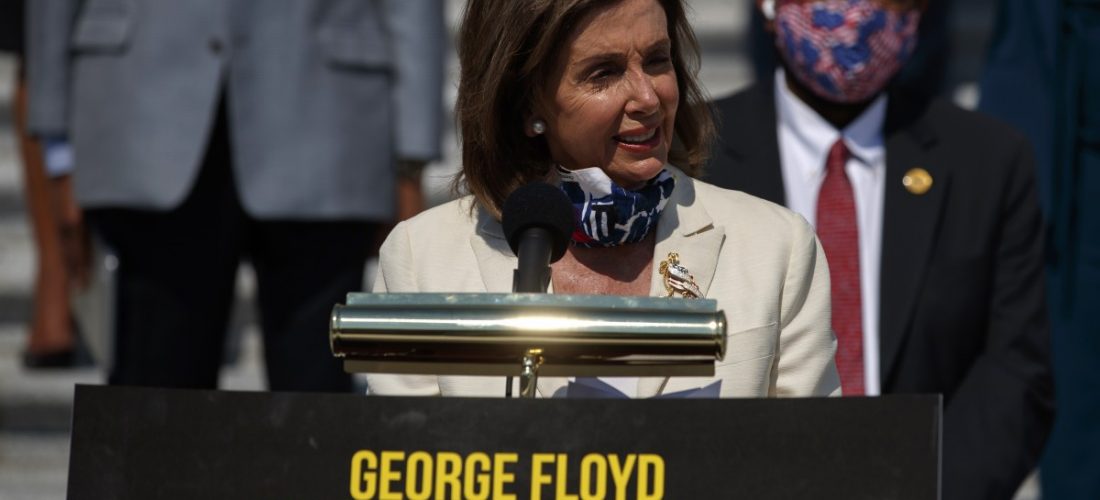Washington, DC (Friday, June 26, 2020) – The House passed the George Floyd Justice in Policing Act. The measure was approved by a vote of 236 to 181 Thursday night along party lines. The legislation is viewed as the first-ever bold to hold police accountable, change the culture of law enforcement, empower our communities, and build trust between law enforcement and communities by addressing systemic racism and bias to help save lives. Congressional Black Caucus Chair Karen Bass (D-CA), Senators Cory Booker (D-NJ) and Kamala Harris (D-CA), and House Judiciary Committee Chair Jerrold Nadler (D-NY) on June 8, 2020. The legislation has 231 cosponsors in the House and 36 cosponsors in the Senate.
Under the George Floyd Justice in Policing Act, for the first time ever federal law would: 1) ban chokeholds; 2) end racial and religious profiling; 3) eliminate qualified immunity for law enforcement; 4) establish national standard for the operation of police departments; 5) mandate data collection on police encounters; 6) reprogram existing funds to invest in transformative community-based policing programs; and 7) streamline federal law to prosecute excessive force and establish independent prosecutors for police investigations.
The George Floyd Justice in Policing Act of 2020:
- Prohibits federal, state, and local law enforcement from racial, religious and discriminatory profiling, and mandates training on racial, religious, and discriminatory profiling for all law enforcement.
- Bans chokeholds, carotid holds and no-knock warrants at the federal level and limits the transfer of military-grade equipment to state and local law enforcement.
- Mandates the use of dashboard cameras and body cameras for federal offices and requires state and local law enforcement to use existing federal funds to ensure the use of police body cameras.
- Establishes a National Police Misconduct Registry to prevent problematic officers who are fired or leave on agency from moving to another jurisdiction without any accountability.
- Amends federal criminal statute from “willfulness” to a “recklessness” standard to successfully identify and prosecute police misconduct.
- Reforms qualified immunity so that individuals are not barred from recovering damages when police violate their constitutional rights.
- Establishes public safety innovation grants for community-based organizations to create local commissions and task forces to help communities to re-imagine and develop concrete, just and equitable public safety approaches.
- Creates law enforcement development and training programs to develop best practices and requires the creation of law enforcement accreditation standard recommendations based on President Obama’s Taskforce on 21st Century policing.
- Requires state and local law enforcement agencies to report use of force data, disaggregated by race, sex, disability, religion, age.
- Improves the use of pattern and practice investigations at the federal level by granting the Department of Justice Civil Rights Division subpoena power and creates a grant program for state attorneys general to develop authority to conduct independent investigations into problematic police departments.
- Establishes a Department of Justice task force to coordinate the investigation, prosecution and enforcement efforts of federal, state and local governments in cases related to law enforcement misconduct.
